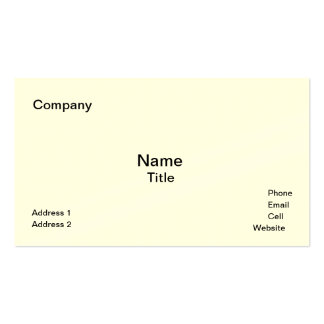Market Analysis
The market analysis section of your business plan should illustrate your
industry and market knowledge as well as any of your research findings and
conclusions. This section is usually presented after the company description.
Information About Your Target Market – Narrow your target market to a manageable size. Many businesses make the mistake of trying to appeal to too many target markets. Research and include the following information about your market:
Distinguishing characteristics – What are the critical needs of your potential customers? Are those needs being met? What are the demographics of the group and where are they located? Are there any seasonal or cyclical purchasing trends that may impact your business?
Size of the primary target market – In addition to the size of your market, what data can you include about the annual purchases your market makes in your industry? What is the forecasted market growth for this group?
How much market share can you gain? – What is the market share percentage and number of customers you expect to obtain in a defined geographic area? Explain the logic behind your calculation.
Pricing and gross margin targets – Define your pricing structure, gross margin levels, and any discount that you plan to use.
When you include information about any of the market tests or research studies you have completed, be sure to focus only on the results of these tests. Any other details should be included in the appendix.
Competitive Analysis – Your competitive analysis should identify your competition by product line or service and market segment. Assess the following characteristics of the competitive landscape:
What to Include in Your Market Analysis
Industry Description and Outlook – Describe your industry, including its current size and historic growth rate as well as other trends and characteristics (e.g., life cycle stage, projected growth rate). Next, list the major customer groups within your industry.Information About Your Target Market – Narrow your target market to a manageable size. Many businesses make the mistake of trying to appeal to too many target markets. Research and include the following information about your market:
Distinguishing characteristics – What are the critical needs of your potential customers? Are those needs being met? What are the demographics of the group and where are they located? Are there any seasonal or cyclical purchasing trends that may impact your business?
Size of the primary target market – In addition to the size of your market, what data can you include about the annual purchases your market makes in your industry? What is the forecasted market growth for this group?
How much market share can you gain? – What is the market share percentage and number of customers you expect to obtain in a defined geographic area? Explain the logic behind your calculation.
Pricing and gross margin targets – Define your pricing structure, gross margin levels, and any discount that you plan to use.
When you include information about any of the market tests or research studies you have completed, be sure to focus only on the results of these tests. Any other details should be included in the appendix.
Competitive Analysis – Your competitive analysis should identify your competition by product line or service and market segment. Assess the following characteristics of the competitive landscape:
- Market share
- Strengths and weaknesses
- How important is your target market to your competitors?
- Are there any barriers that may hinder you as you enter the market?
- What is your window of opportunity to enter the market?
- Are there any indirect or secondary competitors who may impact your success?
- What barriers to market are there (e.g., changing technology, high investment cost, lack of quality personnel)?








No comments:
Post a Comment